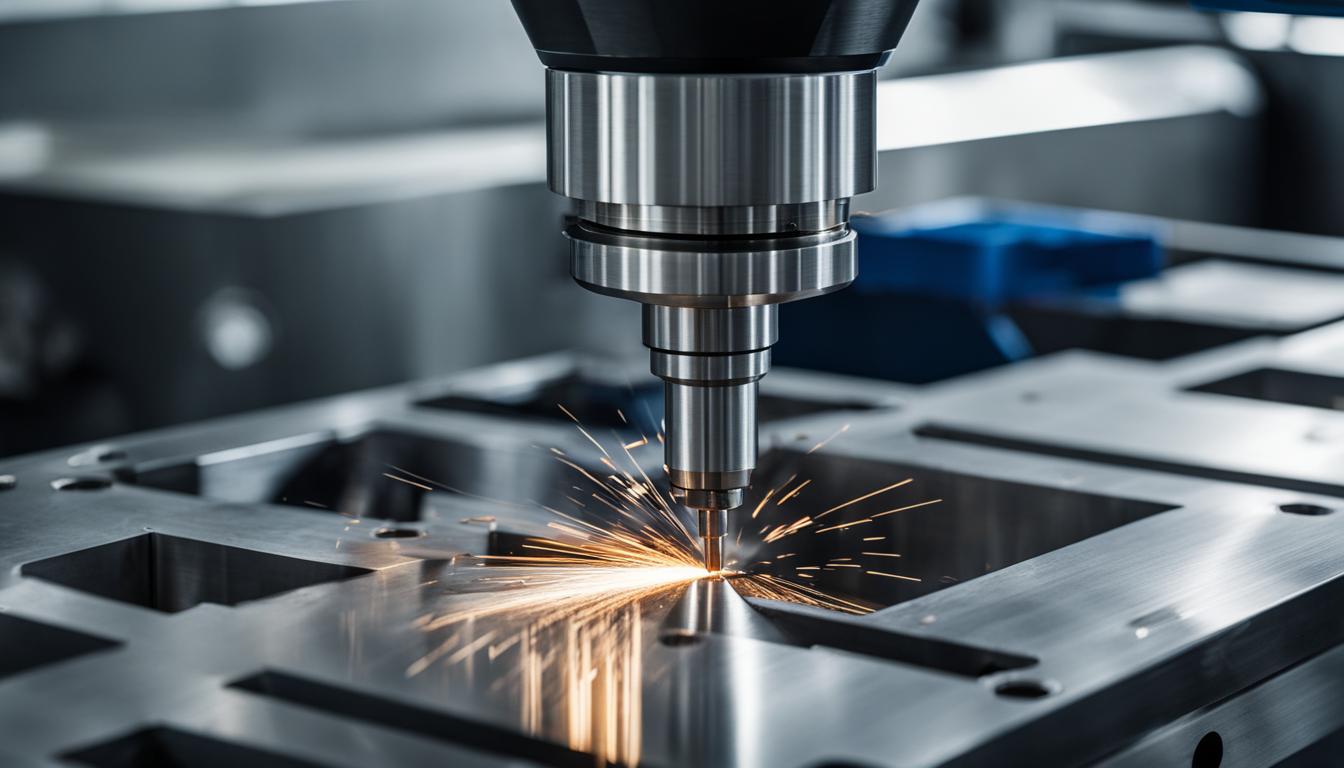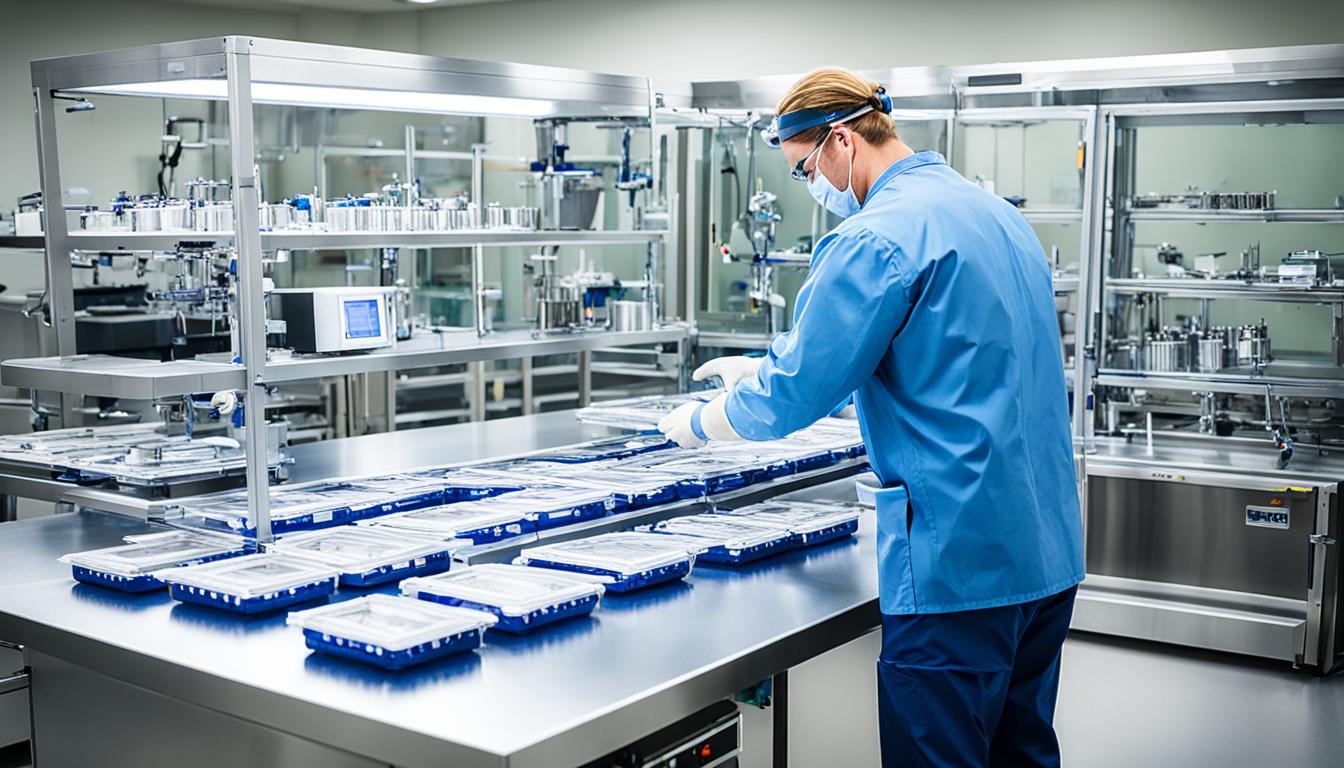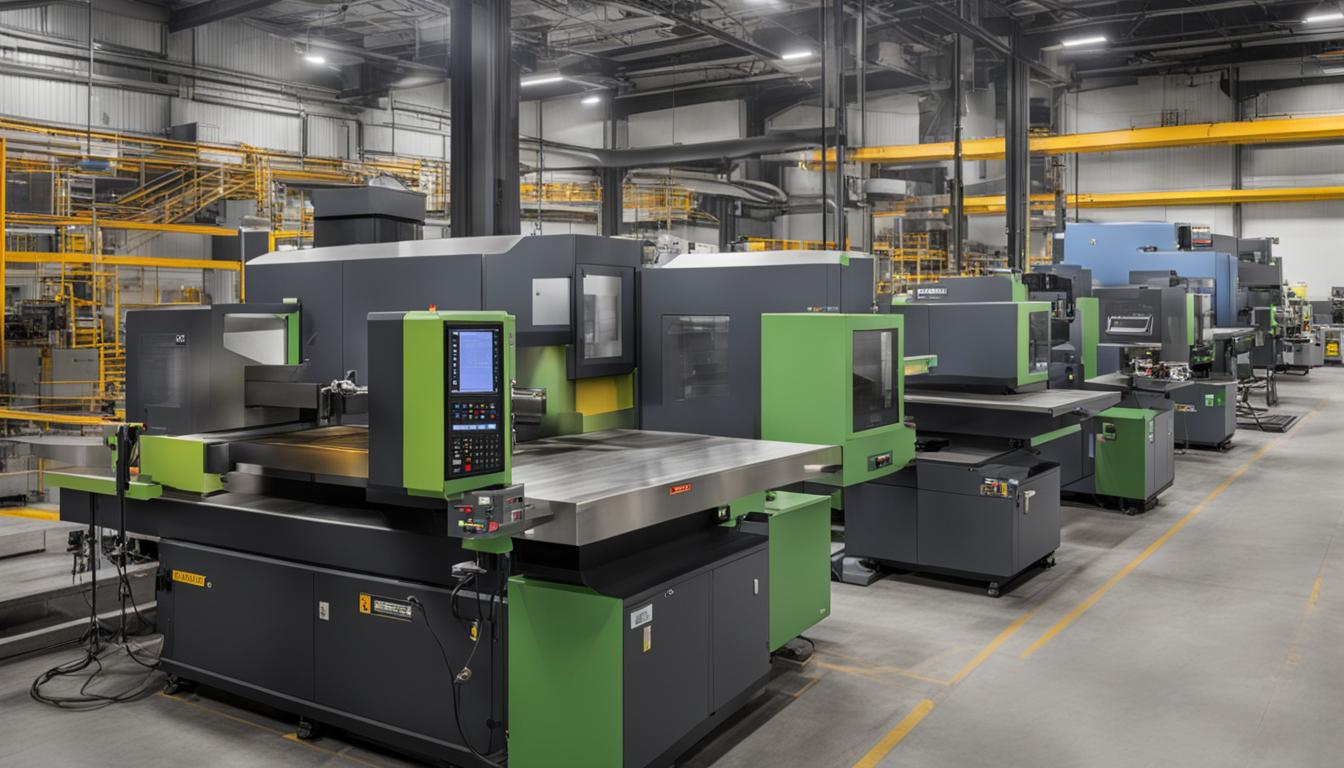CNC software has revolutionized manufacturing across various industries, as evidenced by five impactful case studies. The University of Oregon’s machine shop advanced scientific research through smart CNC milling, enhancing precision and efficiency in experimental equipment production. At Universal Technical Institute’s NASCAR Tech campus, CNC software integration into their curriculum prepared students for high-tech careers in the transportation industry, bridging the skills gap between education and industry demands.
TECMA, a precision machining business serving aerospace and defense sectors, successfully transitioned from 2D to 3D programming using CAMWorks, resulting in increased output and cost control while positioning themselves for future growth. Victoria University in Wellington leveraged CAMWorks to drive innovation in industrial design education, enabling students to explore complex surface machining techniques and prepare for real-world manufacturing challenges.
Case Design, a UK-based flight case manufacturer, utilized Carveco software for custom foam cutting and case production, expanding their capabilities to protect high-value equipment across diverse industries. These case studies demonstrate how CNC software implementation can lead to significant improvements in productivity, education, and innovation across multiple sectors.
- CNC software has the power to transform industries by improving efficiency, productivity, and profitability.
- Case studies provide real-life examples of how companies have successfully implemented CNC software to revolutionize their production processes.
- The manufacturing industry benefits from CNC software through streamlined production, improved user experience, and automation.
- CNC software can enhance productivity in precision machining, design, and manufacturing in recycling systems, medical device manufacturing, and custom guitar production.
- Die set manufacturing can significantly increase throughput and quality with the implementation of CNC software.
Case Study 1: Streamlining Production in the CNC Manufacturing Industry
This case study delves into the challenges faced by a small CNC manufacturing company that struggled with complex and ineffective manufacturing software. The company encountered issues such as slow production processes, high costs, and difficulties in assessing worker skills. To address these challenges, the company decided to implement a new CNC software solution. The results were remarkable, with significant improvements in various aspects of their operations.
The Challenges:
- Slow production processes impeding timely project completion
- High costs due to inefficiencies and resource mismanagement
- Difficulties in accurately assessing and utilizing worker skills
The Solution:
Recognizing the potential of modern manufacturing software, the company opted for a comprehensive CNC software solution that focused on production planning and optimizing the manufacturing process. This software provided an integrated platform to effectively manage shop floor operations, enhance project delivery, and monitor worker performance.
The Benefits:
After implementing the new CNC software solution, the company experienced several significant benefits:
- Streamlined shop floor operations, leading to increased efficiency
- Improved production planning, enabling timely project completion
- Significant cost savings through optimized resource utilization
- Enhanced worker assessment and skill utilization
- Uncovered fraudulent activities within the workforce
The successful implementation of the CNC software solution transformed the company’s production processes, enabling them to deliver projects on time even with limited staff. Additionally, the software helped uncover fraudulent activities, ensuring a more transparent and accountable workforce.
The Result:
By adopting the new CNC manufacturing software, the company witnessed a remarkable turnaround in their operations. The streamlined production processes and improved resource management contributed to increased efficiency, reduced costs, and enhanced project delivery. This case study serves as a testament to the transformative impact of manufacturing software in the CNC manufacturing industry.
Case Study 2: Modernizing Mastercam for Improved User Experience
In this case study, we explore how CNC Software, Inc. took a proactive approach to meet the evolving needs of Mastercam CAD/CAM software users. Understanding the importance of a user-friendly interface and the need for data-driven decision-making, the company embarked on a journey to modernize their software and enhance the overall user experience.
Recognizing that user feedback and usage data hold key insights, CNC Software, Inc. implemented a solution for tracking and analyzing software usage analytics. By gathering valuable data on feature usage, user behavior, and pain points, they gained valuable insights into how their software was being utilized and the challenges users faced.
The data-driven approach enabled CNC Software, Inc. to identify areas for improvement and prioritize updates that would have a significant impact on user satisfaction. Armed with this information, the company set out to create a more intuitive and efficient software interface, addressing common pain points and streamlining workflows.
The redesign process was accelerated by leveraging software usage analytics, allowing CNC Software, Inc. to focus on the most critical areas for enhancement. By understanding which features were underutilized or causing frustration, they were able to allocate resources effectively and make targeted improvements that would have the biggest impact on user experience.
The result of the software redesign was a Mastercam CAD/CAM software with an improved user interface that delivered a more seamless and intuitive experience for users. The enhanced software empowered users to work more efficiently, navigate complex tasks with ease, and achieve higher productivity levels.
By placing user experience at the forefront of their software development strategy and leveraging software usage analytics, CNC Software, Inc. successfully modernized Mastercam to meet the ever-changing needs of their users. This case study highlights the power of data-driven decision-making and the impact it can have on software usability and customer satisfaction.
Software Usage Analytics Key Insights:
- Identified underutilized features and pain points
- Streamlined workflows and improved software interface
- Accelerated software redesign process
- Enhanced user experience and productivity
Case Study 3: Boosting Efficiency in Precision Machining
TECMA, a precision machining company serving the aerospace and defense industries, understands the critical importance of optimizing production processes to stay competitive in today’s fast-paced market. To achieve this, TECMA turned to CNC automation and a comprehensive library revamp through CNC software.
By implementing CAM automation and revamping their programming library, TECMA was able to unlock significant enhancements in their precision machining operations. The integration of CNC automation allowed for streamlined programming capabilities, minimizing human error and maximizing efficiency. The library revamp ensured that TECMA’s team had access to a rich and up-to-date database of machining processes, reducing programming time and optimizing production planning.
This strategic approach not only increased TECMA’s output but also provided them with better control over costs. By automating repetitive tasks and eliminating inefficiencies, TECMA was able to reduce material waste and enhance overall productivity.
TECMA’s investment in CNC automation and library revamp showcases the transformative power of CNC software in the precision machining industry. The precise control and advanced capabilities provided by CNC software enable companies to optimize programming, boost efficiency, and position themselves for future growth.
Take a look at a sample of TECMA’s enhanced productivity statistics in the table below:

| Key Metrics | Before CNC Automation and Library Revamp | After CNC Automation and Library Revamp |
|---|---|---|
| Production Output (units per week) | 100 | 150 |
| Programming Time per Job (hours) | 8 | 3 |
| Material Waste (%) | 10% | 5% |
As demonstrated by the significant improvements in production output, programming time, and material waste, TECMA’s implementation of CNC automation and library revamp yielded transformative results. Their success story serves as a testament to the power of precision machining solutions powered by CNC software.
Case Study 4: Accelerating Design and Manufacturing in Recycling Systems
In the fourth case study, we explore how Karl W. Schmidt & Associates, a global leader in custom recycling systems, leveraged innovative software solutions to enhance their design and manufacturing processes. By integrating CAMWorks and NESTINGWorks software into their SOLIDWORKS design environment, the company achieved remarkable improvements in efficiency, productivity, and cost-effectiveness.
The integration of CAMWorks and NESTINGWorks allowed Karl W. Schmidt & Associates to optimize their design and manufacturing workflows, resulting in accelerated time-to-market for their recycling machinery and equipment. The robust capabilities of these software solutions enabled the company to design complex components, generate efficient toolpaths, and streamline manufacturing operations.
With SOLIDWORKS design as the foundation, Karl W. Schmidt & Associates utilized CAMWorks to automate their CNC machining processes, eliminating manual programming errors and reducing setup time. This automation not only enhanced precision and accuracy but also empowered their team to focus on higher-value activities, such as process optimization and innovation.
Furthermore, the implementation of NESTINGWorks facilitated efficient material utilization by automatically nesting parts within larger sheets, minimizing waste and maximizing material yield. This optimization led to significant cost savings and sustainability benefits for Karl W. Schmidt & Associates, aligning with their commitment to eco-friendly manufacturing practices.
Key Benefits:
- Streamlined design and manufacturing processes
- Accelerated time-to-market for recycling machinery and equipment
- Automated CNC machining for improved precision and efficiency
- Optimized material utilization for cost and waste reduction
In summary, the implementation of CAMWorks and NESTINGWorks software, combined with SOLIDWORKS design, enabled Karl W. Schmidt & Associates to propel their design and manufacturing capabilities to new heights. The successful integration of these innovative software solutions exemplifies the power of technology in driving efficiency, quality, and sustainability in the recycling systems industry.
Case Study 5: Enhancing Productivity in Medical Device Manufacturing
Decimal Engineering, Inc., a renowned medical device manufacturer, has successfully harnessed the power of CNC software to elevate the efficiency and quality of their manufacturing processes. By integrating feature-recognition CAM software and automation into their operations, Decimal Engineering has achieved remarkable outcomes, including minimized production lead times, reduced scrap and rework costs, and maximized machine up-times.
The pharmaceutical and medical device manufacturing industry demands precision, reliability, and adherence to strict quality standards. Decimal Engineering recognized the need for software automation to meet these requirements and gain a competitive edge in the market. By implementing CAM software equipped with feature-recognition capabilities, the company has significantly improved their manufacturing precision and accuracy, ensuring seamless production of intricate medical devices.
Automation plays a crucial role in the medical device manufacturing sector, leading to improved productivity and cost-effectiveness. Decimal Engineering leveraged advanced automation technologies, enabling seamless integration between their CNC machines, auxiliary equipment, and production tasks. By automating repetitive processes and enhancing machine intelligence, Decimal Engineering has successfully streamlined their workflows, minimized manual intervention, and achieved greater consistency in product quality.
One of the key advantages of incorporating CNC software automation in medical device manufacturing is the reduction in production lead times. Decimal Engineering’s integrated software solutions have enabled real-time monitoring and optimization of production processes, ensuring efficient resource allocation and minimizing bottlenecks. Through automated scheduling, the company has experienced accelerated production rates and faster time-to-market for their medical devices.

Case Study 6: Revolutionizing Custom Guitar Production
Born Custom Guitars, a Colorado-based electric guitar company, has embraced the power of CAD/CAM software to transform the process of custom guitar production. With a commitment to sustainability, Born Custom Guitars utilizes innovative materials and the precise functionality of the CAMWorks CAD/CAM system to manufacture unique and high-quality guitars.
In an industry known for its focus on craftsmanship and individuality, Born Custom Guitars stands out by leveraging the power of technology. By integrating CAD/CAM software into their production workflow, the company has achieved greater precision, increased efficiency, and improved turnaround times.
Incorporating Sustainable Materials
As the demand for sustainability grows, Born Custom Guitars recognizes the importance of using environmentally friendly materials. With the aid of CAD/CAM software, the company can efficiently design and fabricate guitars from sustainably sourced materials, reducing waste and minimizing their environmental impact.
By embracing sustainable practices, Born Custom Guitars positions itself as a leader in the industry, attracting eco-conscious musicians who value both quality and environmental responsibility.
Precision and Efficiency with CAMWorks
The key to Born Custom Guitars’ success lies in the precise functionality and ease-of-use of the CAMWorks CAD/CAM system. This software enables the company to streamline their production process, from the design stage to the final product.
With CAMWorks, Born Custom Guitars can accurately translate their designs into machine-readable code, ensuring consistent and flawless execution. This level of precision allows for intricate detailing, complex customization, and a higher level of quality in each guitar produced.
Besides precision, CAMWorks also enhances efficiency by automating repetitive tasks, optimizing toolpaths, and reducing programming time. This enables Born Custom Guitars to deliver custom-built guitars with shorter lead times, ultimately satisfying customer demands and exceeding expectations.
Born Custom Guitars’ Sustainable Materials Inventory
| Material | Properties | Source |
|---|---|---|
| Recycled Wood Composite | Durable, lightweight | Local sustainable suppliers |
| Bamboo | Renewable, resonant | Global sustainable partnerships |
| Reclaimed Metals | Unique, textured | Local salvage yards |
| Plant-Based Resins | Eco-friendly, non-toxic | Environmentally conscious manufacturers |
Case Study 7: Increasing Throughput in Die Set Manufacturing
Anchor Danly, a leading manufacturer in the die set manufacturing industry, has successfully optimized their production processes through the utilization of CNC software. By implementing CAMWorks and advanced machining strategies, they have significantly enhanced their throughput and quality while minimizing costs.
In die set manufacturing, precision machining is crucial for creating high-quality components. Anchor Danly recognized the importance of software optimization to streamline their operations and stay ahead of the competition. The implementation of CAMWorks allowed them to harness the full potential of their machining equipment, resulting in improved productivity and efficiency.
With the integration of CAMWorks, Anchor Danly can now optimize tool paths, reduce cycle times, and enhance the overall precision of their die sets. This software’s advanced features and functionality have proven instrumental in achieving higher throughput and meeting the stringent quality requirements of the industry.
Anchor Danly’s success story serves as a testament to the transformative impact of CNC software in die set manufacturing. By leveraging precision machining and software optimization, companies can unlock new levels of productivity, minimize costs, and maintain a competitive edge in the industry.
